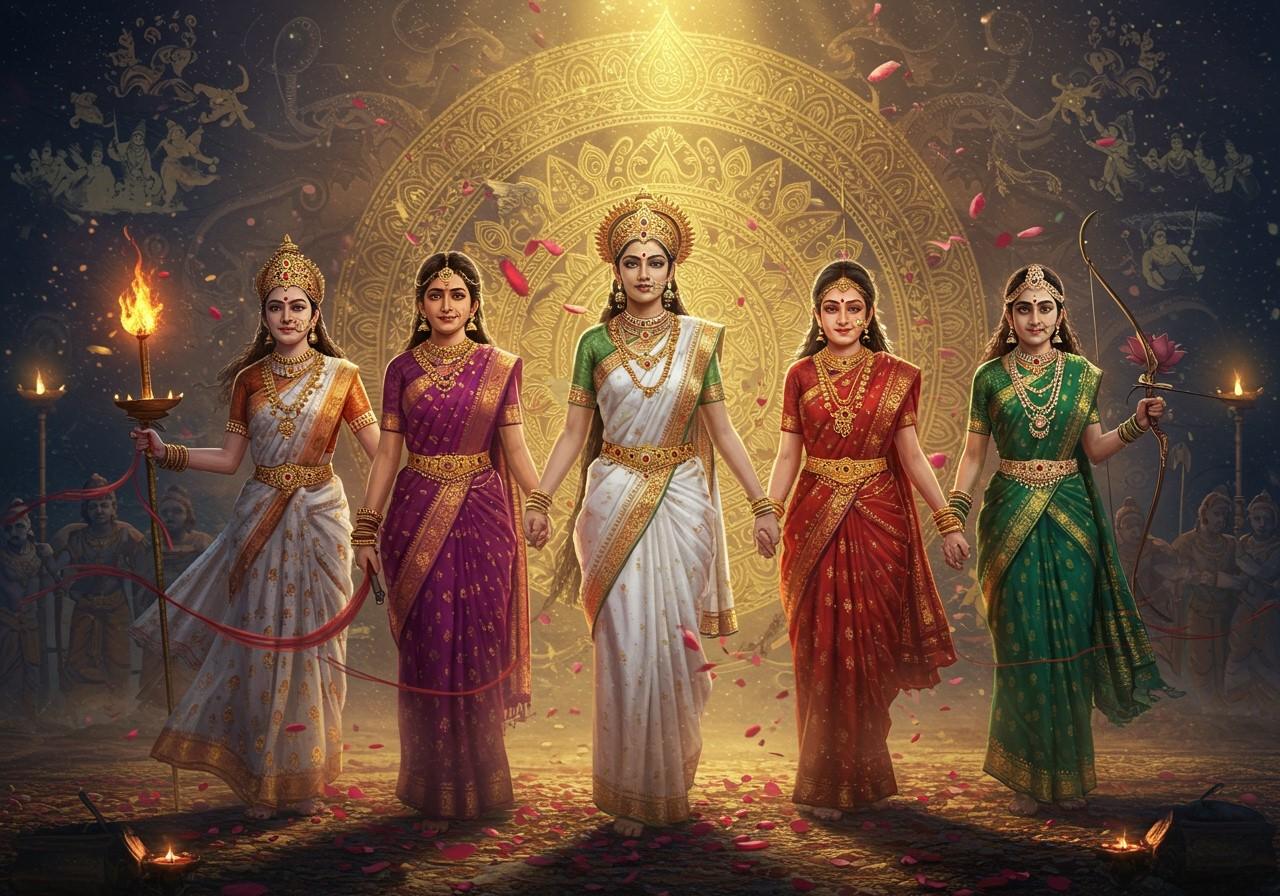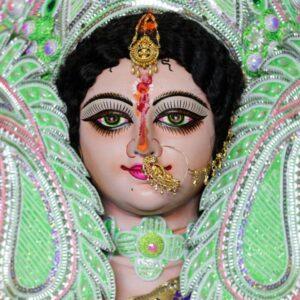
The Mahabharata, a cornerstone of ancient Indian literature, is not just a saga of warriors and battles; it’s a profound exploration of human nature, dharma (duty), and the complexities of life. Within this epic tapestry, the women of the Mahabharata emerge as powerful figures, shaping the narrative with their strength, wisdom, and resilience. Their influence resonates even today, inspiring generations with their stories of courage, sacrifice, and unwavering resolve. These women challenge traditional gender roles and contribute to the political and cultural landscape of the story. These women are portrayed as strong, intelligent, and ambitious, redefining heroism and societal values in a patriarchal context. The article also discusses the cultural implications of the Divine Feminine within the epic.
The Diverse Roles of Women in the Mahabharata
The women of the Mahabharata defy simple categorization. They are not merely mothers, wives, or daughters; they are complex individuals who navigate a world of moral dilemmas and societal expectations. They embody a spectrum of human experiences, from the unwavering devotion of Gandhari to the fierce determination of Draupadi. Their actions often serve as catalysts for change, driving the narrative forward and shaping the destiny of entire kingdoms. Their roles extend beyond the domestic sphere, influencing political decisions and challenging societal norms. These women redefine traditional gender roles through strength, intelligence, and ambition, reshaping heroism and cultural values in a patriarchal society.
Draupadi: A Symbol of Resistance and Resilience
Draupadi, the wife of the five Pandava brothers, stands as a symbol of resistance against injustice. Her humiliation in the Kaurava court becomes a pivotal moment in the epic, igniting the flames of war. Draupadi’s unwavering spirit and her commitment to dharma make her a powerful force in the narrative. She embodies the strength and resilience of women in the face of adversity. You can find traditional cotton sarees, similar to those worn by Draupadi, at poojn.in. These sarees are perfect for both daily wear and special pujas, allowing you to connect with the spirit of Draupadi.
Gandhari: Embodiment of Sacrifice and Devotion
Gandhari, the wife of the blind king Dhritarashtra and mother of the Kauravas, exemplifies sacrifice and unwavering devotion. Her decision to blindfold herself in solidarity with her husband demonstrates her profound commitment. Gandhari’s story explores the complexities of motherhood and the devastating consequences of unchecked grief and anger. At poojn.in, you can find premium quality ghee for sacred lamp offerings, reminiscent of Gandhari’s unwavering devotion. Learn more about devotion and sacrifice in our blog post about Ramayana characters.
Kunti: A Mother’s Strength and Wisdom
Kunti, the mother of the Pandavas, embodies wisdom and strength in the face of adversity. She raises her sons in exile, guiding them with her unwavering moral compass. Kunti’s decisions, often made under duress, have far-reaching consequences, shaping the course of the epic. Just as Kunti provided for her sons, poojn.in offers pure copper water pots (kalash) similar to those used by Kunti, allowing you to connect with the spirit of nurturing and resilience.
Satyavati: Catalyst for Change and Ambition
Satyavati, a woman of ambition and intelligence, plays a pivotal role in the lineage of both the Pandavas and Kauravas. Her choices challenge traditional expectations, demonstrating the power of female agency in shaping the destiny of kingdoms. Satyavati’s influence reverberates throughout the epic, highlighting the impact women have on political and societal structures. Explore our collection of brass statues of goddesses at poojn.in, celebrating the divine feminine strength embodied by figures like Satyavati.
The Enduring Legacy and Cultural Impact
The women of the Mahabharata continue to inspire and resonate with audiences today. Their stories transcend time, offering valuable lessons about dharma, resilience, and the complexities of human relationships. These women remain powerful symbols of female strength and agency, challenging societal norms and inspiring generations to strive for justice and equality. Explore this blog post on the strength of women in the Ramayana for further insights into the enduring legacy of female characters in epic literature.
For those seeking to deepen their understanding of the Mahabharata and its profound teachings, Poojn.in offers a wide range of resources. Explore our collection of books, devotional items, and cultural artifacts to connect with the rich heritage of this epic narrative.

